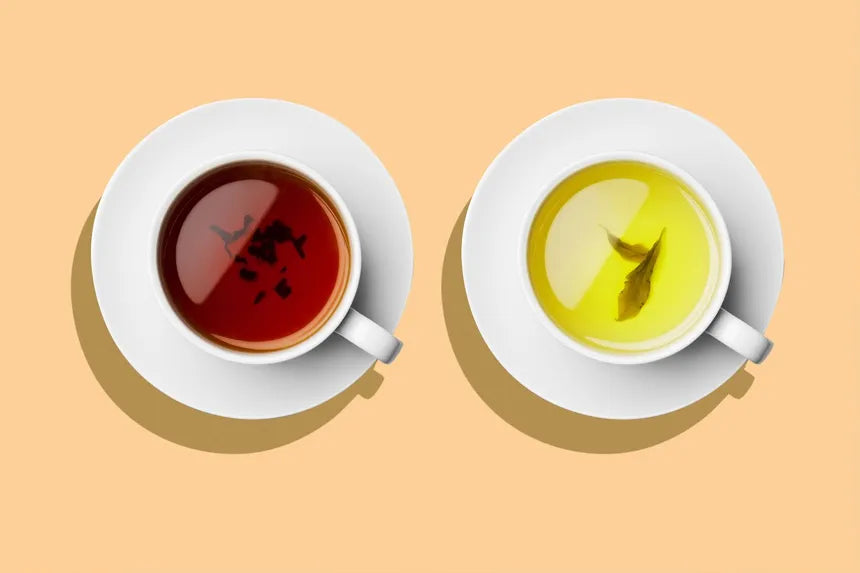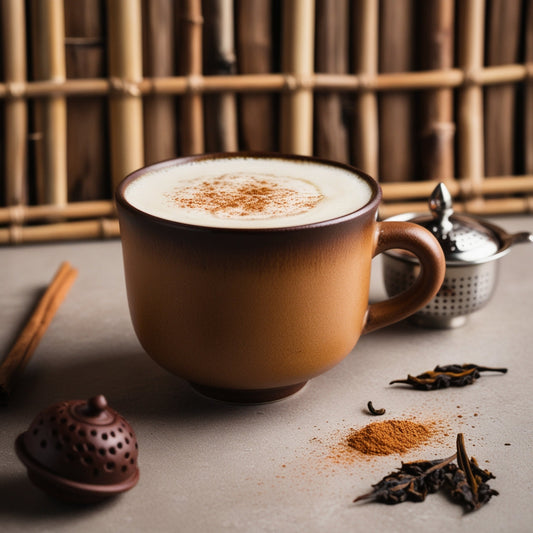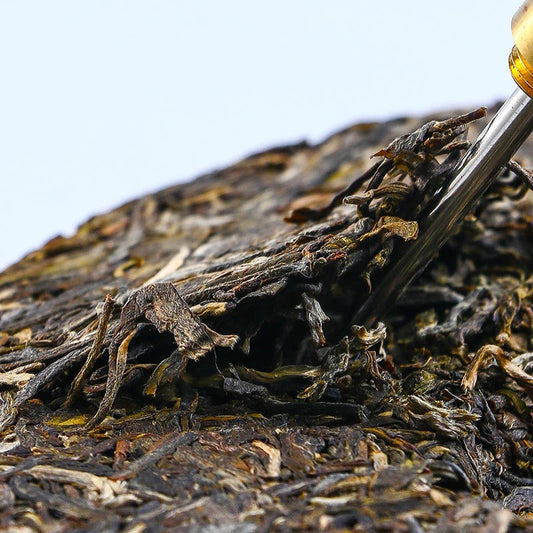Overview
Are you trying to decide between green tea and black tea?
It can be a bit confusing since both teas offer different flavors, benefits, and potential side effects. Green tea is known for its delicate taste and health-boosting antioxidants, while black tea has a bold flavor and can provide a strong energy boost. In this article, we’ll dive into the details of both green and black tea, exploring their distinct characteristics, health benefits, and possible side effects. However, while exploring about teas you should also know which is the best green tea blends for you.
Table of Contents
- Introduction
- Green Tea
- Black Tea
- Health Benefits of Green Tea
- Health Benefits of Black Tea
- Shared Benefits of Green Tea and Black Tea
- Side Effects of Green Tea
- Side Effects of Black Tea
- Which One Should You Drink?
- Conclusion
Introduction
Both teas are made from the same plant, Camellia Sinensis, but the undergo different processing. Green tea leaves are quickly dried or steamed to prevent oxidation, while black tea leaves are fully oxidized, giving them a darker color and richer flavor. Both have their own benefits and problems. But we can still avoid the side effects. Understanding these differences can help you choose the tea that best suits your taste and health goals.
Green Tea
Green tea is celebrated for its subtle taste and impressive health benefits. It originates from China and is known for its light, fresh flavor. The leaves are harvested and quickly steamed or pan-fired to halt oxidation, which keeps the tea’s green color and delicate flavor. Green tea is rich in antioxidants called catechins, particularly epigallocatechin gallate (EGCG). These compounds help combat oxidative stress and may reduce the risk of chronic diseases like heart disease, diabetes, and cancer. Green tea also contains caffeine and L-theanine, which can boost mental alertness and promote a state of calm.

Black Tea
Black tea has a bold, robust flavor and is widely consumed around the world. The leaves are fully oxidized, which gives the tea its dark color and strong taste. This type of tea is typically processed by withering, rolling, oxidizing, and drying. Black tea contains higher levels of caffeine compared to green tea, making it a great option for those needing a stronger energy boost. The oxidation process also enhances the formation of certain compounds known as theaflavins and thearubigins, which have been linked to various health benefits.
Health Benefits of Green Tea
At first we can discuss about the health benefits.
1. Rich in Antioxidants:
This contains polyphenol catechins, including epigallocatechin-3-gallate (EGCG), which are powerful antioxidants.
2. Potential Alzheimer’s Protection:
EGCG may help break apart tau protein tangles in the brain, which are linked to Alzheimer’s disease, potentially improving brain function.
3. May Support Longevity:
A study found that it could help slow the shortening of telomeres, DNA sequences related to aging and disease.
4. Skin Health Benefits:
The polyphenols, especially EGCG, might protect the skin from UVB rays and reduce the risk of skin cancer. More research is needed.
5. Cognitive Benefits:
Green tea can help reduce anxiety, improve memory, and enhance attention due to its caffeine and L-theanine content.
Health Benefits of Black Tea
1. Boosts Alertness:
Black tea generally has higher caffeine levels than green tea, which can enhance alertness and concentration.
2. May Help with Depression:
Drinking 1-4 cups a day (450-600 mg of caffeine) might reduce the risk of depression, according to a 2021 study.
3. Supports Bone Health:
Some evidence suggests black tea may slightly improve bone health and help manage low blood pressure after meals.
4. Reduces Oxidative Stress:
The polyphenols and flavonoids in black tea may help lower oxidative stress and inflammation.
5. Potential Longevity Benefit:
A 2022 study found a modest link between drinking two or more cups of black tea daily and a lower risk of death, though more research is needed for broader conclusions.
Shared Benefits of Green Tea and Black Tea
1. Heart Protection:
Antioxidants: Both teas are rich in polyphenols, including flavonoids, which are believed to protect heart health.
Cholesterol and Blood Pressure: Both types of tea can lower LDL (bad) cholesterol and triglycerides, and help reduce blood pressure.
Plaque Prevention: Green and black tea can help prevent blood vessel plaque formation.
2. Brain Function Boost:
Caffeine: Both teas contain caffeine, which stimulates the nervous system, enhances alertness, mood, and short-term memory.
L-Theanine: Both green and black teas have L-theanine, which promotes relaxation while maintaining alertness, and may enhance the effects of caffeine.
Mood Enhancement: L-theanine and caffeine together may improve attention and cognitive function.
Side Effects of Green Tea
There are some side effects that we need to consider.
1. Stomach:
Drinking green tea without food might irritate the stomach lining, leading to stomach aches, constipation, or nausea. It may also cause acid reflux or acidity in some people.
2. Effect on Medications:
Green tea can affect certain medications. It may enhance the effects of stimulant drugs or interfere with the efficacy of high blood pressure or chemotherapy medications.
3. Bone Health:
Green tea might increase calcium loss through urine, which could potentially impact bone health.
4. Risk of Anemia:
The tannins in green tea can bind to iron, reducing its absorption from foods and supplements, which may increase the risk of iron-deficiency anemia.
5. Caffeine Content:
The caffeine in green tea can aggravate anxiety in some individuals.
6. Pregnancy Risks:
Excessive green tea consumption (more than six cups per day) might increase the risk of birth defects due to folic acid deficiency. Pregnant women should limit their intake.
7. Liver Disease:
Green tea, especially in supplement form, can be harmful to individuals with liver disease.
Most side effects are related to excessive consumption or green tea supplements, which contain higher concentrations of bioactive compounds. Drinking green tea in moderation is generally safe for most people. However, it’s wise to consult a healthcare professional if you have health concerns or are on medication.
Side Effects of Black Tea
Now we can discuss the side effects of Black Tea.
1. Headaches and Irregular Heartbeat:
Drinking more than four cups of black tea per day may cause headaches and irregular heartbeat. Pregnant and breastfeeding women should limit their intake to three cups per day.
2. Anxiety:
Caffeine Impact: The caffeine in black tea can worsen anxiety symptoms.
3. Heart Conditions:
Irregular Heartbeat: Large amounts of caffeine might lead to irregular heartbeats.
4. Bleeding Disorders:
Blood Clotting: Black tea can slow down blood clotting, which may affect people with bleeding disorders.
5. Diabetes:
Blood Sugar Levels: Consumption of black tea may impact blood sugar levels.
6. Seizures:
Increased Risk: Caffeine might increase the risk of seizures and make anti-seizure medications less effective.
7. Glaucoma:
Eye Pressure: The caffeine in black tea can raise pressure inside the eye, potentially worsening glaucoma.
8. Osteoporosis:
Calcium Loss: Black tea can lead to increased calcium loss from the body, which may weaken bones.
9. Hormone-Sensitive Health Conditions:
Exacerbation: Conditions sensitive to estrogen, such as breast cancer, uterine cancer, ovarian cancer, endometriosis, or uterine fibroids, might worsen with black tea consumption.
10. Digestive Issues:
Stomach Upset: Drinking black tea, especially on an empty stomach, can cause stomach upset or acidity.
11. Iron Absorption:
Reduced Absorption: Tannins in black tea can decrease the absorption of plant-based iron, which is important for vegetarians or those at risk of iron-deficiency anemia.
12. Caffeine Dependency:
Withdrawal Symptoms: Excessive consumption can lead to caffeine dependence. Sudden discontinuation might cause headaches, irritability, and fatigue.
13. Bone Health:
Bone Density: High caffeine intake from black tea might be linked to reduced bone density in some people.
For individuals with specific health concerns or on certain medications, it’s important to consult a healthcare professional to understand how black tea might affect their health.
Which One Should You Drink?
Both green and black tea offer a range of similar health benefits, despite their differences in polyphenol composition. Both types of tea can positively impact blood vessel function. While research often shows that green tea has stronger antioxidant properties, some studies have found that green and black teas have comparable antioxidant capacities. Although both teas contain caffeine, black tea generally has more of it. This makes green tea a better choice for those sensitive to caffeine. Green tea also contains more L-theanine, an amino acid that promotes relaxation and helps balance the effects of caffeine.
For those seeking a moderate caffeine boost that’s less intense than coffee, black tea can be a suitable alternative. It's important to note that both green and black tea contain tannins, which can bind to minerals and reduce their absorption. To maximize mineral intake, it's best to enjoy tea between meals. By understanding these shared benefits and considering personal preferences, you can choose the tea that best fits your lifestyle and health goals.

Conclusion
In choosing between green tea and black tea, consider your taste preferences and health needs. Additionally, green tea offers a delicate flavor and calming effects, with antioxidants like EGCG that may reduce disease risk. It’s a great choice if you're sensitive to caffeine. Black tea, with its bold taste and higher caffeine content, can provide a stronger energy boost. It also supports heart health and reduces oxidative stress. Just be mindful of your intake to avoid side effects. Additionally, Pu-erh tea is another excellent choice with unique benefits and flavors worth exploring. Ultimately, the best tea for you depends on your personal preferences and health goals.
Q&A Section
Q1. What’s the difference between green tea and black tea?
A1: Green tea is made from unoxidized leaves and has a lighter flavor. Black tea is fully oxidized, which gives it a darker color and stronger taste.
Q2. Is green tea good for people who are sensitive to caffeine?
A2: Yes, green tea has less caffeine than black tea and coffee, making it a better option for those who are sensitive to caffeine.
Q3. Can drinking tea help with weight loss?
A3: Both green and black tea can support weight loss by boosting metabolism. Opt for unsweetened tea to avoid extra calories.






